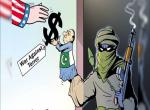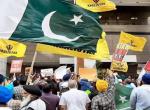The arrest and deportation of Abu Jundal alias Abu Hamza alias Sayed Zabiuddin Ansari, a Lashkar-e-Toiba (LeT) handler, involved in several terror attacks in various parts of India, by Saudi Arabia is a classic case of good counter-terrorism cooperation between the two countries. The case prompts several questions: Who is Abu Jundal? How did he get involved in Lashkar-e-Toiba (LeT)? Why did he go to Saudi Arabia? What factors were responsible for Riyad’s acceptance to deport Jundal despite Pakistan’s opposition? What is the way ahead in the bilateral counter-terrorism cooperation between India and Saudi Arabia?
Abu Jundal
Belonging to Gevrai area of Beed district in Maharashtra, Sayed Zabiuddin Ansari, was initially impressed by tenets of Ahle Hadees or Salafis, who “adhere to the pristine teachings of Islam as enshrined in the Holy Quran and Sunnah.”1 He gradually gravitated towards Students Islamic Movement of India (SIMI) and took care of its operations in the states of Uttar Pradesh and Maharashtra for sometime before shifting to Indian Mujahideen. It was at this point he got contacts with the LeT and went on to become its handler in India. As police net was closing in, he fled to Pakistan after 2006 through Nepal or Bangladesh. He was considered a “good find” by the LeT and, therefore, was roped-in in various anti-India operations.
Apart from the famous Aurangabad arms haul case (May 2006), Hamza has been involved in or connected with a number of terror attacks in India: IISc attack in Bengaluru (December 2005), Mumbai train bombings (July 2006), 26/11 Mumbai attacks (November 2008), German Bakery blast in Pune (February 2010), Chinnaswamy Stadium attack in Bengaluru (April 2010) and Jamma Masjid attack in Delhi (September 2010). After this point, the timeline of Ansari’s involvement is blank. The plausible explanation he shifted his base to Saudi Arabia in 2010, at around the same time when his name was spilled by one of the accused in the German Bakery case. Until then he was believed to have been involved only in the Aurangabad arms haul. The Indian investigators soon realised that an Indian Hindi voice in the recordings of conversations between 26/11 attackers and their controllers in Pakistan was that of Abu Hamza. His name was, therefore listed, in the dossier of 50 most wanted criminals sheltered in Pakistan released by India on 21 May 2011
By then he had already been sent to Saudi Arabia by the LeT to mobilize funds and recruits from Indian Muslims working there. The plan was to launch a big attack in India at an appropriate time. The LeT already has a good network in Saudi Arabia. Bearing a Pakistani passport in the name of Riyasat Ali, Jundal started working on his assignment even by using internet, especially the social networking site Facebook. It was this overconfidence that gave the whereabouts of Jundal in the form of electronic trails. He was put on surveillance for some time with the help of Saudi intelligence agencies.
After the arrest, Saudis were initially reluctant to handover Jundal to India because of Pakistan. Saudi Arabia did not want to upset Pakistan, its staunch ally. Islamabad knew the significance of the arrest and Jundal’s value to Indian authorities and the damage it could cause to Pakistan’s image if Ansari confesses whatever he knows. He was the only Indian present at the “control room” in Karachi that guided the entire course of 26/11 Mumbai attack; he not only knows who else were present, but also their exact role and motivations. Ajmal Kasab, lone terrorist caught alive among the 10 terrorists who carried out Mumbai attacks, was just an operative. But, Ansari had been involved right from the planning of the attacks to its execution and also its post-mortem. His first-hand testimony is important for India to connect various unconnected dots in the case.
Thus far, testimonies of Kasab and David Headley are available to India; only Ansari should be in a position to confirm whether they spoke the truth or not. Zabiuddin Ansari should also be able to explain the extent of Pakistan’s, its intelligence agencies to be more precise, involvement in various terror attacks against India. As Pakistan claims, is it really not in a position to control anti-Indian militant groups based in its soil? Or, is it controlling everything, from planning to execution of terror attacks against India? Whether Jundal fled to Saudi Arabia with the help of Pakistani establishment or with the help of LeT or both? How did he manage to survive in Saudi Arabia for nearly two years with a “fake passport”? Ansari is also expected to know a lot about the Pakistan-based LeT: its leadership, motivations, funding, recruitment, training, bases (both political and military), logistical support, its linkage with state and non-state actors of Pakistan, other internal and external networks, its modules and ‘sleeper cells’ in India, selection of targets, plans for future attacks, and its extent of connections with Indian jihadist groups like SIMI and IM.
India-Saudi Arabia CT Cooperation
Indeed, intense pressure from the US worked. However, it was the realisation on the part of the Saudis on the need to cooperate with India on counter-terrorism that prompted them to deport Jundal, but on the condition that only if he is an Indian national. They finally came around to hand him over when they got convinced by DNA profile of Jundal and other proofs submitted by India unambiguously establishing his Indian nationality. On the other hand, Pakistan had no credible proof to show to the Saudis to ascertain that he was a Pakistani citizen. In the recent years, Riyadh has been increasingly feeling concerned over collaboration between Al Qaeda in Arabian Peninsula (AQAP) and LeT and its possible implications in the long run. US’ determination of LeT as one of the most dangerous terror outfits, first by listing it as a ‘Foreign Terrorist Organization’ and later by announcing $10 million on the LeT chief Hafiz Saeed, sent strong signals to Saudi authorities: that they should not let Al Qaeda enter into the Kingdom through LeT.
The counter-terrorism cooperation between India and Saudi Arabia has to be looked at also from the point of improving bilateral ties. The relations have been on the upward trend ever since January 2006 when King Abdullah visited India (a visit by a Saudi head of the state after 50 years) as a chief guest of India’s Republic Day celebrations. The ‘Delhi Declaration’ that was signed during the visit termed that the “visit heralds a new era in India-Saudi Arabia relations and constitutes a landmark in the development of increased understanding and cooperation between the two countries and creation of a mutually beneficial partnership.”2 Apart from other areas like economy, trade, science & technology, health and culture, the two countries recognised the “need to intensify and coordinate bilateral, regional and global cooperation to combat and eradicate the menace of terrorism.”3 However, there was no concrete agreement on counter-terrorism cooperation except for signing a ‘MoU on Combating Crime’. Although the MoU provided for cooperation between the security agencies of the two countries for combating organised crime, illicit trafficking of narcotics, weapons, and historical artifacts, and counterfeiting of currency and travel documents, in practice there were hitches.
The obstacles came in the form of perception of what constituted “crime” and priorities in addressing them. Yet, when the overall bilateral relations improved to the level of ‘strategic partnership’ in 20104, and when Saudi Arabia found that the importance of India as a major power has been gaining resonance, there have been meeting grounds. This was reflected in the signing of Extradition Treaty between the two countries in the same year. Defence Minister AK Antony’s visit to the Kingdom in February 2012, the first by a Defence Minister of India, tremendously boosted defence ties between the two countries, including in counter-terrorism.
The counter-terrorism cooperation between India and Saudi Arabia does not stop with the deportation of Abu Jundal. It has a vast potential to be realised so that the two countries, as Prime Minister Manmohan Singh has pointed out, are “strong allies against the scourge of extremism and terrorism that affects global peace and security.” 5 Since Abu Jundal was assigned to work also among Indian Muslims in radicalizing them, it is important that the cooperation between the two countries goes further in identifying the network of those already radicalised and in safeguarding Indians (about two million) from any radicalising attempts by jihadi groups based in the Kingdom. It is appreciable that the Saudi authorities have apprehended another Indian terrorist, Fasih Mohammed, who was involved in Chinnaswamy cricket stadium bomb blast in Bengaluru and shooting incident at Delhi's Jama Masjid. His immediate deportation would help the ongoing investigations in these cases.
Further, Saudi Arabia should arrest and deport all Indian fugitives hiding in that country and in future should discourage such elements from entering into the Kingdom. Much attention is also required in blocking funds to Indian terror groups from non-state actors based in Saudi Arabia. The two countries stand to gain not only on economic complementarities, but also on security and defence complementarities. A Joint Committee on Security similar to the one on Defence should be set up to make the security cooperation comprehensive: intelligence sharing, monitoring and surveillance, joint exercises, high-level visits, exchange programmes, and so on. Using the present momentum, India should make best use of its diplomatic energies to prevail on violent non-state actors based in Pakistan, like the LeT, through Saudi Arabia. Riyadh’s help is vital for New Delhi to counter jihadist terrorism in the country, which King Abdullah called as his “second home”.
Reference:
- For more about Ahle Hadees, see http://www.ahlehadees.org/about-ahle-hadith-hadees/markazi-jamiat-ahle-hadees-hadith-history.html
- For full text of the Delhi Declaration, see http://www.indianembassy.org.sa/WebFiles/Delhi%20Declaration.pdf
- Ibid.
- Riyadh Declaration signed on 28 February 2010 between India and Saudi Arabia during Prime Minister Manmohan Singh’s visit to Riyadh, decided “to raise their cooperation to a strategic partnership covering security, economic, defence and political areas.” Full text of the Declaration is available at http://www.indianembassy.org.sa/WebFiles/Riyadh%20Declaration.pdf
- Prime Minister Manmohan Singh’s interview with Saudi journalists during his visit to Riyadh. For full text of the interview, see http://pmindia.nic.in/interview-details.php?nodeid=3
- “How terror funds are pumped in from Saudi,” Rediff News, 11 August 2011.
Published Date: 6th July 2012









Post new comment